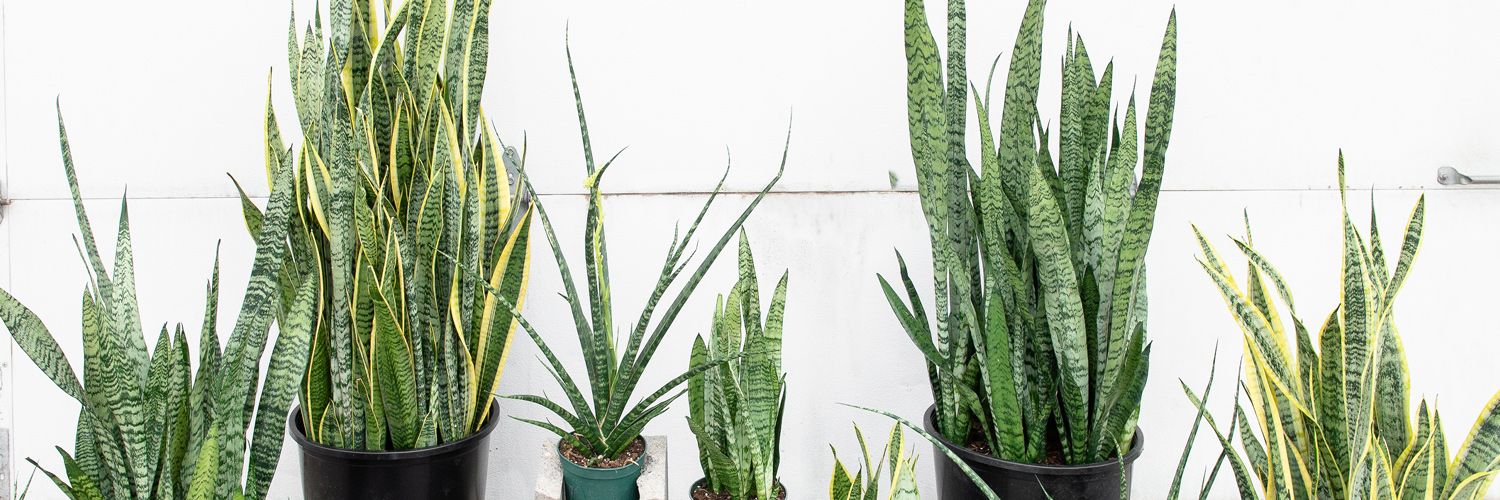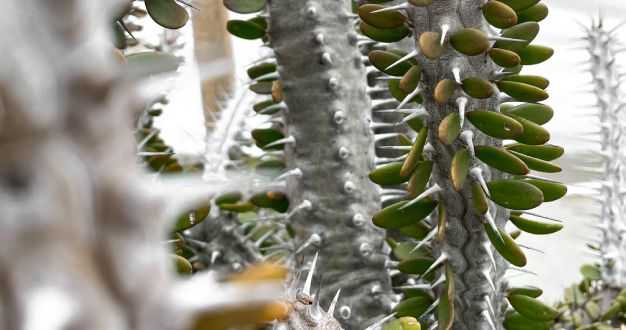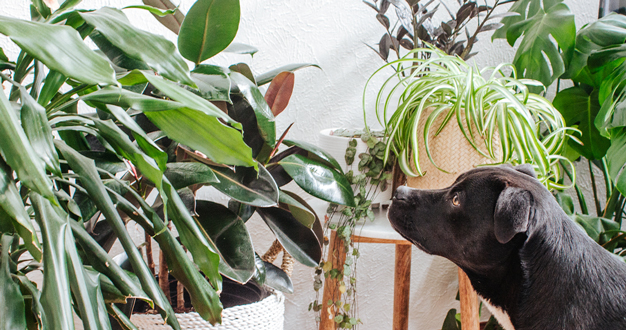
Simply beautiful and almost indestructible – the popular houseplants known as sansevierias have earned their spots as top favorites for so many houseplant enthusiasts. And with dozens of species in a variety of sizes, patterns, and foliage shapes, they’re addictively collectible too.
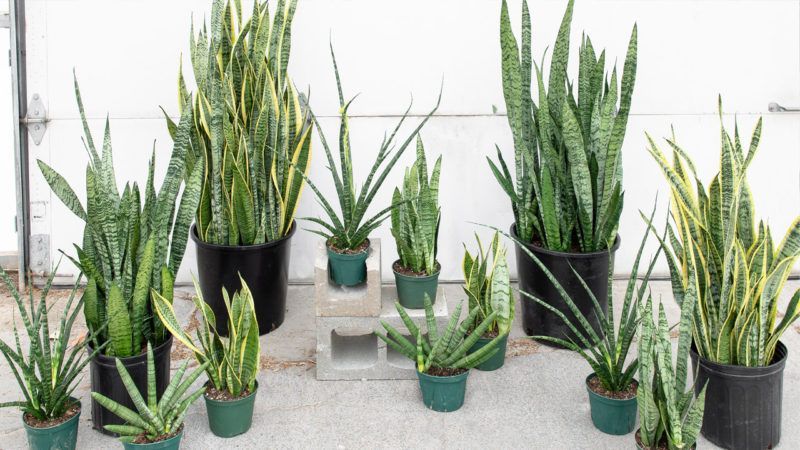
Light
Sansevieria will thrive in bright to bright indirect light – an east or south-facing window would be perfect. While these plants can tolerate lower light environments, as a succulent plant native to Africa, they’ll do best with bright light.
Water
Let the soil dry down almost completely between waterings. In lower light, a sansevieria may need water only once a month – more often if the light is brighter. When it’s time, give a thorough drink, allowing the excess water to drain out of the drainage hole.
Soil
Use a well-draining houseplant potting mix. One designed for cacti and succulents is perfect for these plants. Or, you can combine an equal mix of potting soil, perlite, and orchid bark as a DIY version. Also, make sure to pot in a pot with a drainage hole.

Environment
Sansevierias love warmth, and they thrive in a typical indoor environment if they’re protected from drafts and chilly windows. No extra humidity needed for these plants.
Fertilizer
Feed sansevierias lightly; they’re happy with a gentle fertilizer formulated for cacti and succulents or with a balanced 10-10-10 houseplant fertilizer once or twice a month.
Propagation
Sansevierias are easily propagated by division at the root and repotting the sections into small pots. Or, you can propagate by stem cutting. But be patient, this process takes a long time – even months.
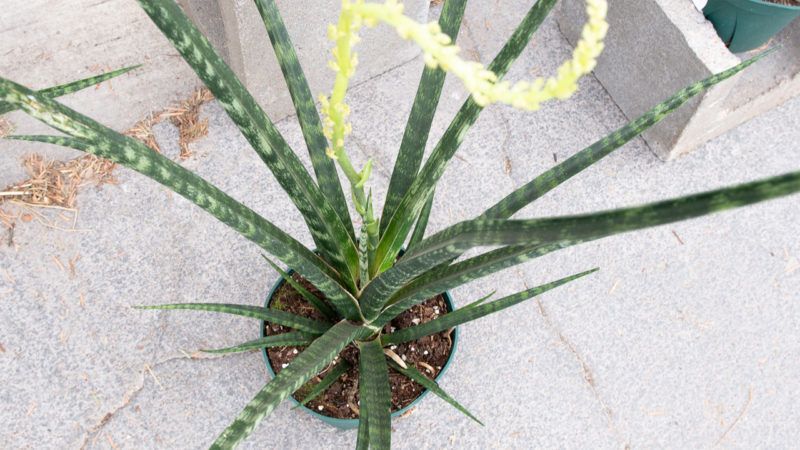
Toxicity
As a group, sansevierias are considered toxic to pets and may cause vomiting or other digestive issues if consumed.
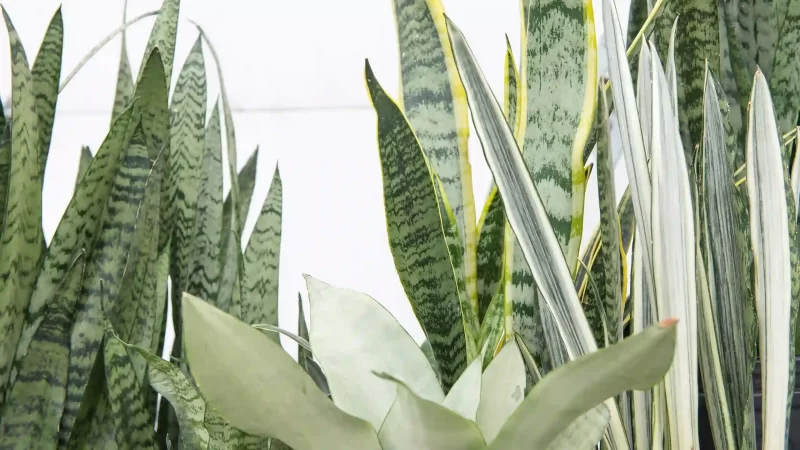
Additional Notes on Sansevierias
- Several years ago, sansevierias were actually reclassified into the genus Dracaena, but for most collectors, they retain the common name sansevieria.
- Occasionally, a sansevieria will produce multiple slender, creamy yellow stalks stacked with tiny, lily-like blooms. The flowers open at night, and the lovely scent fills rooms.
- Sansevierias are known for their air-purifying qualities, and unlike many other plants, they release oxygen at night.

